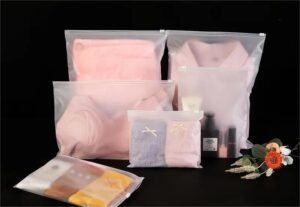As the CEO of Natural Touch Clothing, I’ve always been passionate about the materials we use in our products. One material that stands out in the textile industry, and particularly in our product line, is organic cotton. But what exactly is organic cotton, and why do we, at Natural Touch Clothing, prefer it?
Organic cotton is cotton that is grown without the use of synthetic pesticides, fertilizers, or genetically modified organisms (GMOs). It’s cultivated using methods that have a low impact on the environment, promoting a more sustainable way of farming. This approach not only benefits the environment but also improves the quality of the cotton produced.

In a world where sustainability is becoming increasingly important, understanding what organic cotton is and why it matters is crucial. So, let’s dive deeper into this topic. What makes organic cotton different from conventional cotton? How does it benefit the environment and the consumers? And why should businesses, especially in the B2B sector like ours, consider switching to organic cotton?
Eco-Friendly Farming Practices
The eco-friendly nature of organic cotton begins in the fields. Farmers use natural methods to control pests and manage soil fertility, avoiding harmful chemicals. This approach reduces pollution and conserves water, contributing to a healthier ecosystem.
Benefits to Farmers
Organic cotton farming is more than just a job; it’s a lifestyle for the farmers. It provides them with a safer working environment, free from exposure to toxic chemicals. Moreover, organic farming often commands a higher market price, leading to better incomes for these farmers.
Health Advantages for Consumers
For consumers, the benefits of organic cotton are directly linked to health. Without the chemical residues found in conventional cotton, organic cotton products are softer, hypoallergenic, and safer, particularly for those with sensitive skin.
Durability and Quality
In terms of durability, organic cotton stands out. Its natural cultivation process leads to stronger fibers, resulting in clothing that lasts longer. This means less frequent replacement and, ultimately, less waste.
Influence on Fashion Trends
Organic cotton has made a significant impact on fashion trends. It’s not just a material; it’s a statement. Designers are increasingly incorporating organic cotton into their collections, promoting sustainability without compromising on style.
Cost Implications
Yes, organic cotton is often more expensive than conventional cotton. This cost is due to the more labor-intensive and time-consuming farming practices. However, the long-term benefits – environmental protection, health advantages, and superior quality – justify the cost.
Conclusion
At Natural Touch Clothing, our commitment to using organic cotton reflects our dedication to quality and sustainability. By choosing organic, we’re not just creating clothing; we’re supporting a movement towards a more sustainable and healthier world. This choice aligns with our vision as a business, and it resonates with our customers who seek more than just fashion – they seek a statement of their values.





